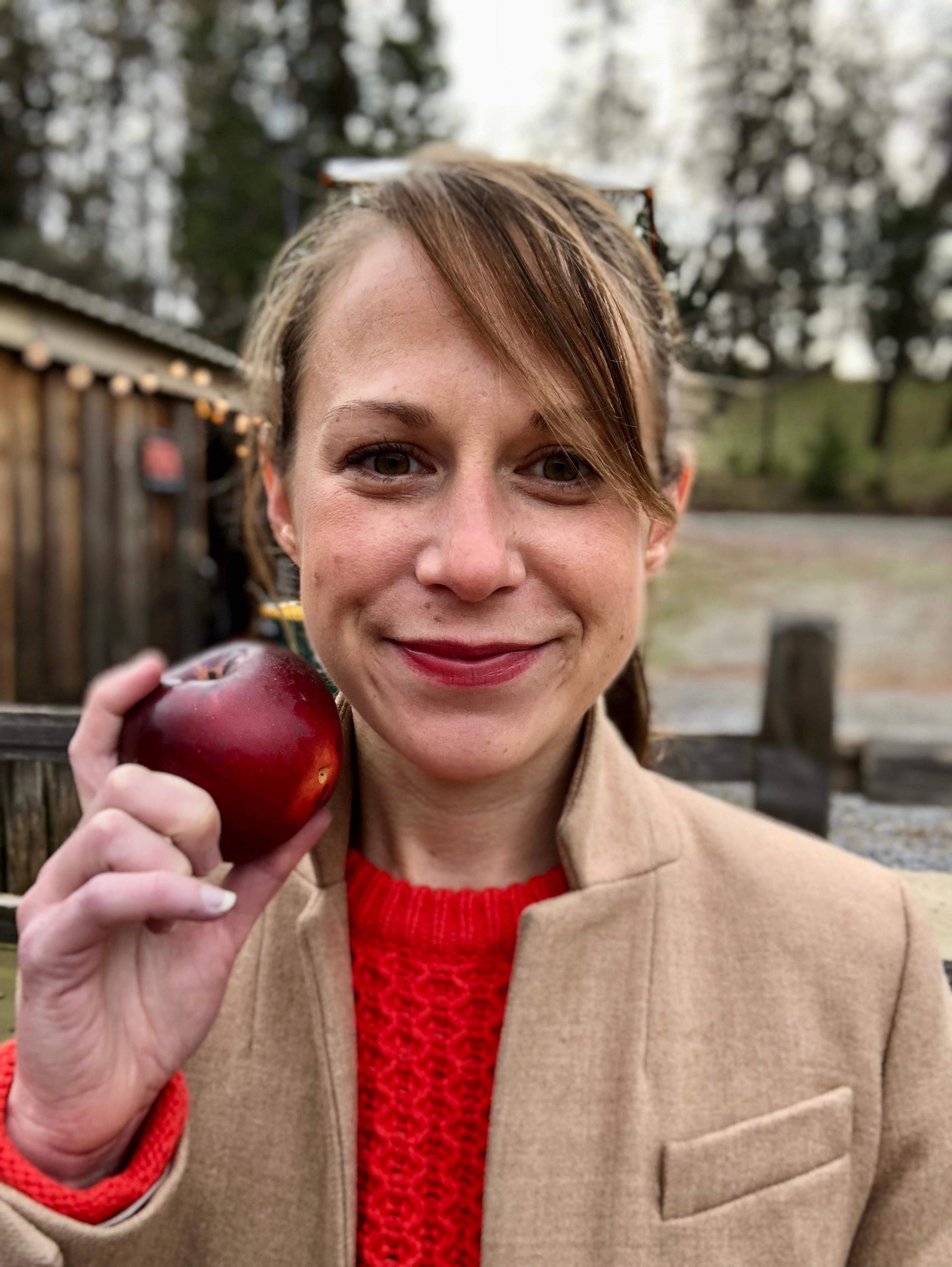
Let’s be real: our society has always valued thin bodies more than larger ones. But in recent years, with the rise of body positivity and other movements that challenged the thin ideal, it seemed like we were taking collective steps in the right direction. Over the past few months, however, there have been some huge strides backward.
In January, the American Academy of Pediatrics issued new and controversial guidelines recommending weight loss drugs to kids as young as 12 and weight loss surgery for those just one year older. At the same time, headlines started being dominated by Ozempic, a diabetes medication that’s surged in popularity as a weight loss drug. The backdrop of it all is the return of the thin worship and heroin-chic aesthetic that characterized the 90s.
It’s overwhelming for anyone with a body, but all of these cultural shifts can be particularly worrisome for parents and their young children. How can you protect your kids from the bombardment of messages telling them their bodies aren’t good enough? Several Equip experts weighed in on what to say and do to push back and help kids and teens build the resilience that will ward off struggles with self-esteem, body image, or even a full-blown eating disorder.
How did we get here in the first place?
First up, Ozempic. Ozempic is a brand name for semaglutide—which is also sold under the names Wegovy and Rybelsus—a drug developed in 2012 to treat type 2 diabetes. Semaglutide increases the secretion of insulin, which lowers blood sugar levels. This is crucial for people with diabetes, but for those who don’t have diabetes, it has the effect of reducing appetite by slowing down digestion in the stomach. It also causes gastrointestinal side effects like nausea, vomiting, diarrhea, and constipation. All of this makes food less appealing, driving people to eat less.
In 2021, the FDA approved a high-dose version of semaglutide for weight loss under the brand name Wegovy (Ozempic hasn’t yet been approved for weight loss and is currently being used by many off-label). It was approved for adults with ob*sity or excess weight and at least one “weight-related condition,” such as high blood pressure, type 2 diabetes, or high cholesterol. In the past year or so, semaglutide-based drugs like Ozempic and Wegovy surged in popularity as celebrities and influencers have started taking them to lose significant amounts of weight in short amounts of time. At the time I’m writing this, the #ozempic hashtag has been viewed over 700 million times on TikTok.
Then, in 2022, the FDA approved Wegovy for weight loss in kids as young as 12. The press release from Novo Nordisk, the maker of Wegovy, notes that it is approved for use in adolescents with a BMI at or above the 95th percentile.
Just weeks after this approval, the AAP came out with new guidelines for treating obesity for the first time in 15 years. In the guidelines, the AAP—the largest professional association of pediatricians in the U.S.—recommended weight loss medication (like Wegovy) for children as young as 12 and bariatric surgery for children 13 and older. For some children with a certain genetic condition, weight loss drugs were recommended as young as six. (Read our statement on the AAP guidelines.)
Shannon Walding, a therapist at Equip, likens today’s current obsession with weight loss drugs to the popularity of Fen-Phen (fenflurmine-phentermine, a weight loss drug in the 80s and 90s eventually taken off the market because it caused cardiovascular issues). “But this time, the stakes are much higher, with the AAP recommending weight loss drugs to children as young as six and weight loss surgery to those as young as 13,” Walding says. “Eating disorder treatment professionals have been loudly ringing alarm bells about the damage these AAP recommendations will cause, knowing that up to 25% of diets will turn into an eating disorder. And when we know that someone dies every 52 minutes from an eating disorder, the message is loud and clear: we’re willing to risk the actual health and safety of children for the sake of a manufactured aesthetic of ‘health.’”
What parents can say and do about it all
Given all of the above, it’s understandable that parents might be concerned about the effect on their children. After all, while kids may not be reading the abundance of think pieces about Ozempic, the current societal obsession with thinness at all costs almost inevitably trickles down in other ways. “I don’t know if you need to bring up Ozempic directly, and I don’t know if kids are really hearing about Ozempic,” says Dr. Erin Parks, Equip co-founder and Chief Clinical Officer, but she notes that young people are likely observing a shift in the types of bodies that are valued (i.e., very thin).
Here are some actionable things that you can say and do (or not say and not do) to keep your kids safe from the harmful fatphobia currently swirling in the air.
Watch how you talk about bodies
“More important than what you say to your children about their bodies is what you say to yourself or in front of your kids about your body and other people’s bodies,” says Parks. “Do they hear you say to your friend, ‘Did you see that Katie lost weight? I wonder what she’s been up to?’ Do they see you greet your brother and say, ‘Oh my goodness you look like you lost weight, you look amazing!’ Those are the things that are communicating the loudest to your children.”
Parks explains that when we compliment people on weight loss or trying to lose weight, we send two harmful messages to our kids: first, that being small is better; and second, that people have direct control over the size of their body, which isn’t true.
When possible, don’t comment on people’s bodies at all, and if you do, try to comment on things besides body shape or size, like a bright smile or a new hairstyle. The same goes for your own body: don’t make disparaging remarks about your weight or shape, and try to shift the focus to how you feel rather than how you look (“I want to do this workout so I can feel stronger!”).
Emphasize that bodies change—and that’s normal
For adolescents and teens whose bodies are rapidly changing, all of the societal focus on being rail-thin is especially trying. “I think one thing in particular to emphasize to your kids about both your body and their body is that bodies change and that’s normal,” says Parks. “Bodies change as they go through puberty, bodies change as you age. It’s normal for bodies to change over time.”
Do some social media curation
While each family has their own boundaries and rules around independence, it can be helpful for parents to take the reins when it comes to their child’s social media use. “Consider muting certain words and phrases—like Ozempic or weight loss, for instance—on your children’s social media feeds, or blocking weight loss content completely,” recommends Walding. “Don’t be afraid to make social media work in your favor: help your kids find creators and influencers in all different kinds of bodies. We’re constantly fed the narrative, explicitly and implicitly, that being thin is associated with health and good social status, while being fat is unhealthy and undesirable. Calling b.s. on these tropes and making sure that your kid’s social media feeds are curated to show people in diverse bodies enjoying life is a great way to start reversing the harm done by the cultural thin ideal.”
Set boundaries at the doctor’s office
Given the new AAP guidelines, parents may need to take proactive steps to keep their kid’s doctor from making harmful statements or recommendations. “Our bodies are our most constant companions, and we owe it to our children to protect their relationship with their bodies as fiercely as possible,” says Walding. “One way we can advocate for them is by setting clear boundaries in the doctor’s office about how weight will be discussed.” If setting these boundaries feels intimidating to you, Walding recommends using resources like these “Don’t Talk About My Child’s Weight” cards.
Model critical thinking
To help your kids push back against harmful messages from society, show them how to think critically about these messages. “Parents should always be initiating conversations around their observations about society,” says Parks. “We want to raise our kids to be critical thinkers. Our culture has such an inherent, structural, systemic, and implicit bias toward fatness. We idolize thinness, we allow jokes about fat people, we discriminate against fat people, and it’s such an ongoing part of our culture that you don’t even notice it until you stop and try to observe it. We want kids to be able to step back and observe the culture they’re a part of.”
Parks says this should be an ongoing dialogue, rather than a one-time conversation. She recommends calling out fatphobia or ads for weight loss whenever you see them, but also calling out misleading messages in general so that your kids learn not to blindly trust the messages they’re being peddled. “Who profits when we believe our bodies are problems to be fixed? This is a question parents can start exploring with their children,” Walding adds.
Thin worship never went anywhere, but it feels particularly inescapable right now. But society’s skewed values don’t need to make their way into your family or into your child’s mind. With some proactive conversations and critical thinking, you can help your child build resilience against whatever “health” guidance comes down the pipeline next.
Citations:
- Hampl, Sarah E. et al. Clinical Practice Guideline for the Evaluation and Treatment of Children and Adolescents With Obesity. Pediatrics (2023) 151 (2): e2022060640. https://doi.org/10.1542/peds.2022-060640
- Abstracts of the 48th EASD Annual Meeting of the European Association for the Study of Diabetes. Diabetologia 55 (Suppl 1), 1–538 (2012). https://doi.org/10.1007/s00125-012-2688-9
- Social and economic cost of eating disorders in the United States of America. Report for the Strategic Training Initiative for the Prevention of Eating Disorders and the Academy for Eating Disorders. June 2020.








